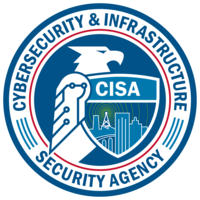 Greetings! I’m Kristen Howard, the new Information Security Officer at Simmons University. My main goal is to work with faculty, staff, and students to raise awareness about cybersecurity and foster a secure online setting. By partnering together, we can protect the university’s information and enable a safe and effective digital environment for everyone in our community.
Greetings! I’m Kristen Howard, the new Information Security Officer at Simmons University. My main goal is to work with faculty, staff, and students to raise awareness about cybersecurity and foster a secure online setting. By partnering together, we can protect the university’s information and enable a safe and effective digital environment for everyone in our community.
This month we will focus on the human role in cybersecurity.
 When we say See Yourself in Cyber, we mean see yourself in cyber no matter what role you play. As an individual or consumer, take steps to protect your online information and privacy. Faculty, staff, and service providers can take ownership of their role by putting cybersecurity in place to prevent incidents while protecting the University’s brand and reputation. Administrators support critical operations and are a part of the network of functions and systems that others rely on.
When we say See Yourself in Cyber, we mean see yourself in cyber no matter what role you play. As an individual or consumer, take steps to protect your online information and privacy. Faculty, staff, and service providers can take ownership of their role by putting cybersecurity in place to prevent incidents while protecting the University’s brand and reputation. Administrators support critical operations and are a part of the network of functions and systems that others rely on.